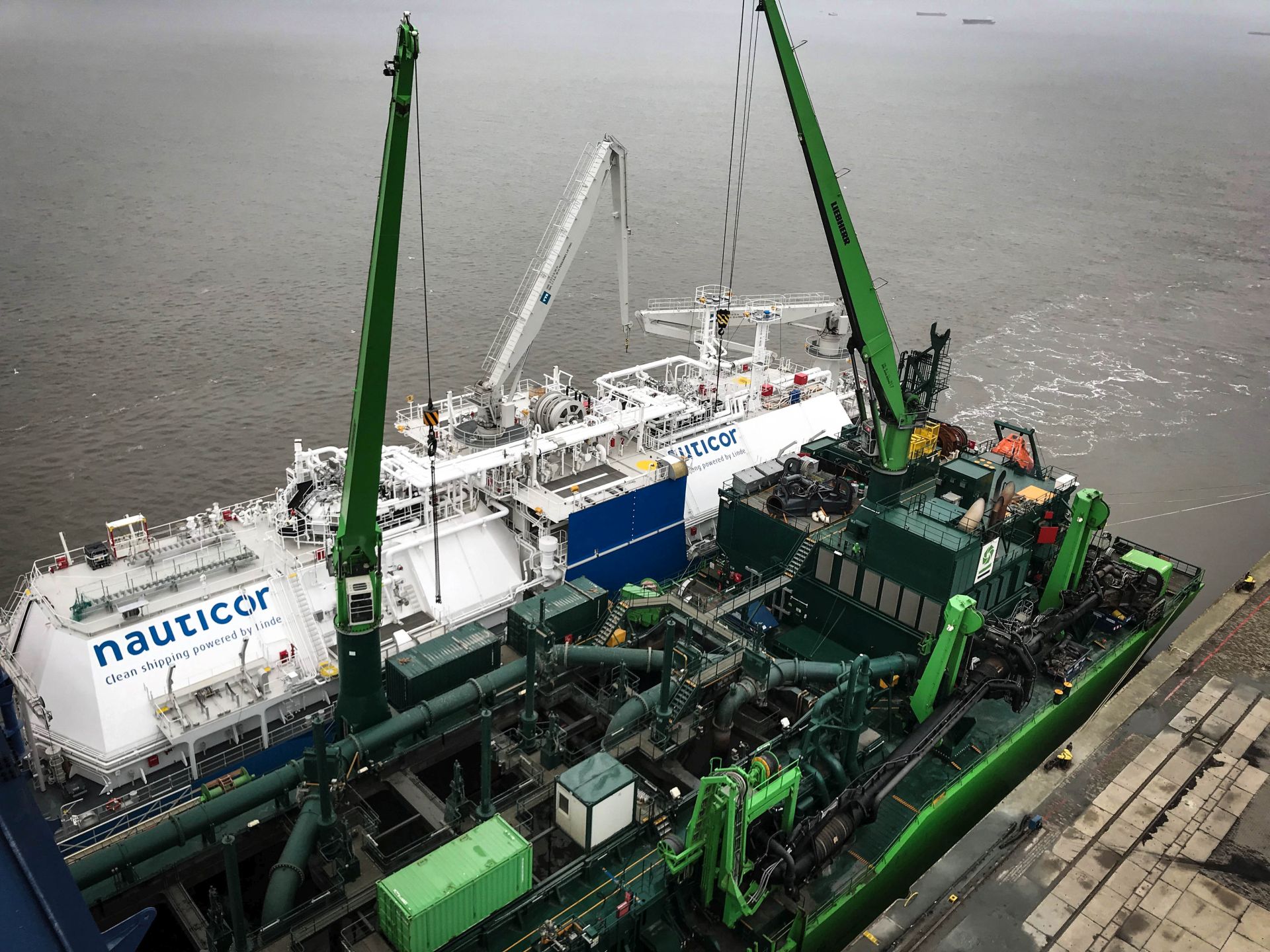The world’s largest LNG, BSV Kairos, has conducted the first ship-to-ship bunkering operation in German waters. The vessel, which was christened in Hamburg on February 2019, is owned by Babcock Schulte Energy and is operated on behalf of the German LNG supplier Nauticor. In total, the TSHD Scheldt River received LNG at the Elbehafen Brunsbüttel, part of Brunsbüttel Ports GmbH. Scheldt River is owned and operated by the DEME Group and is conducting maintenance dredging works on the Lower Elbe.
In the past, the vessel has received LNG from Nauticor through truck-to-ship bunkering operations. In the beginning of October, the DEME Group and Nauticor signed a framework agreement for the supply of LNG with the BSV Kairos to DEME’s fleet of newbuild vessels with LNG propulsion. The first ship-to-ship LNG bunkering operation in a German port marks the start for an extended cooperation.
Mahinde Abeynaike, CEO of Nauticor: “Our team has been able to achieve another milestone in the development of a comprehensive LNG supply infrastructure with the successful execution of the first ship-to-ship LNG bunkering operation in Germany. The operations with the world’s largest LNG BSV Kairos allow for flexible, safe and efficient supply of the environmentally friendly fuel to marine customers. A variety of marine customers are already utilizing this service, including product tankers, container vessels, ferries and special purpose vessels, such as the trailing suction hopper dredger Scheldt River.“
By using LNG, a wide range of emissions, especially sulphur, nitrogen and particle matters, as well as carbon dioxide, can be significantly reduced. Therefore, LNG is seen as more environmentally friendly in comparison to traditional oil-based marine fuels.
The possibility to supply LNG through a ship-to-ship bunkering operation marks an important milestone for the shipping sector in Germany in general. By using larger BSVs, it becomes practical both economically and ecologically to supply larger vessels with significant amounts of LNG. Previous LNG bunkering operations in Germany were conducted solely through the truck-to-ship method.




